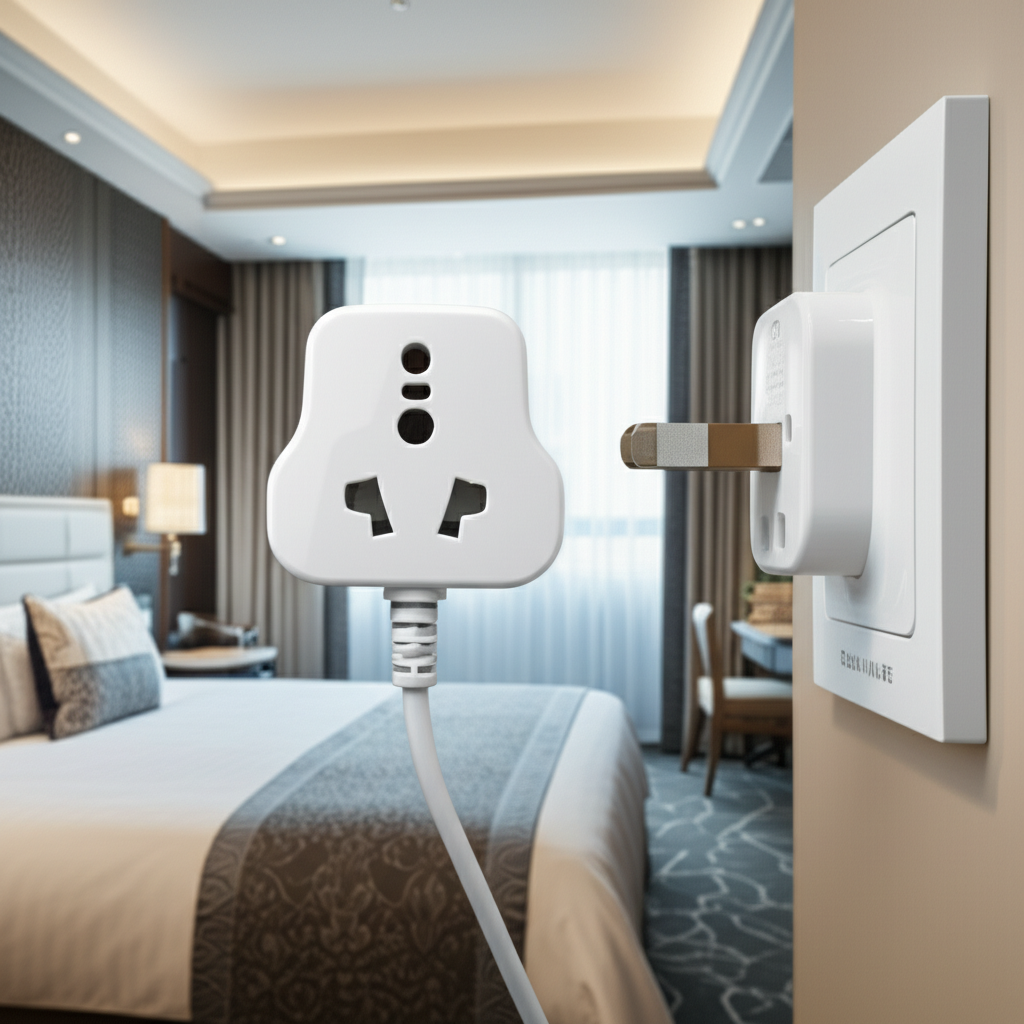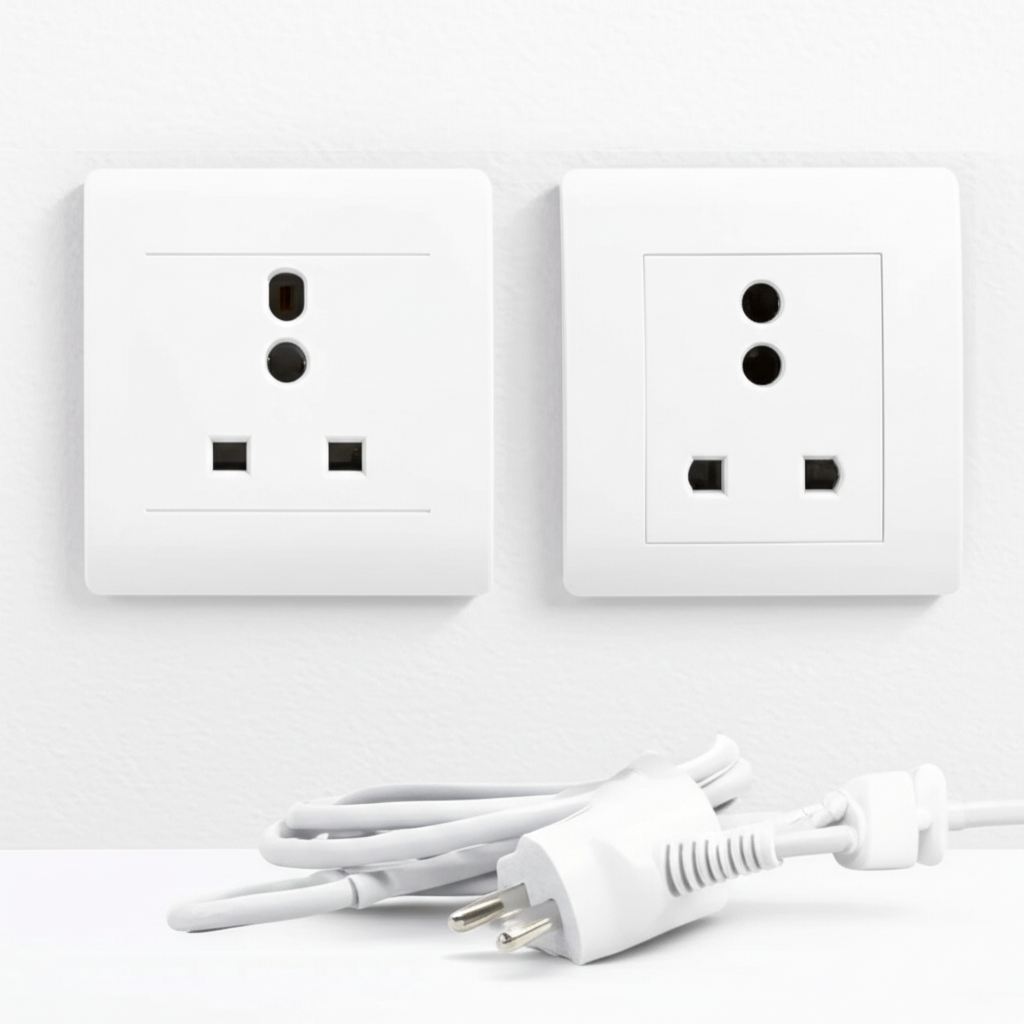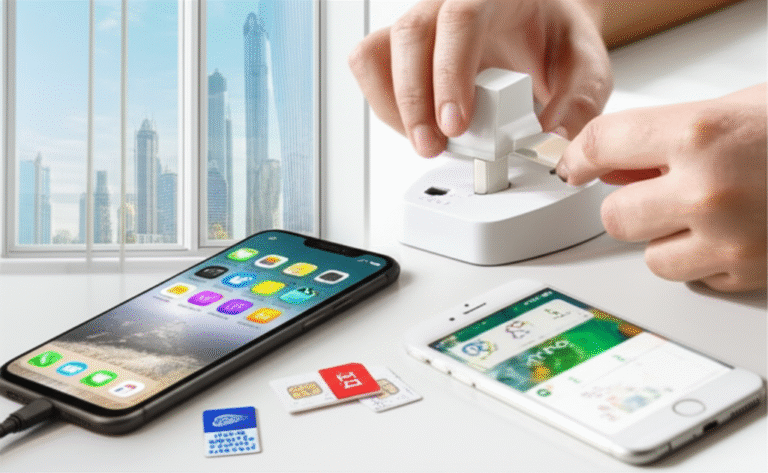No, Dubai plugs are not the same as UK plugs. You will need a universal adapter or a specific UK to UAE adapter for your UK devices to work safely and correctly in Dubai.
Are Dubai Plugs Same As UK? Your Proven Adapter Guide
Moving to Dubai, planning a holiday, or just received a package from the UK? You’re probably wondering about the plugs. It’s a common question, and getting it right is super important for keeping your gadgets charged and safe. The good news is, it’s easy to sort out! As your go-to guide for all things telecom and connectivity in Dubai, I’m here to break down exactly what you need to know about plugs and adapters, making sure you stay connected without any hassle.
This guide will cover everything from understanding the different plug types to choosing the best adapter, ensuring your phone, laptop, and other essential devices are powered up the moment you arrive. Let’s dive in and make sure you’re prepared!
Contents
- 1 Understanding Electrical Sockets in Dubai
- 2 Comparing UK and Dubai Sockets
- 3 Types of Adapters You Might Need
- 4 How to Choose the Right Adapter
- 5 Using Your Adapter Safely
- 6 Table: UK vs. UAE Electrical Standards Summary
- 7 Beyond Plugs: Staying Connected in Dubai
- 8 Frequently Asked Questions (FAQs)
- 9 Conclusion
Understanding Electrical Sockets in Dubai
Dubai, like the rest of the United Arab Emirates (UAE), operates on a different electrical system than the United Kingdom. This means the plugs on your UK devices won’t fit directly into UAE sockets.
What Plug Type Does Dubai Use?
The UAE primarily uses Type G electrical sockets. These are the same type of sockets used in the United Kingdom and several other countries. However, there’s a crucial difference: the voltage and frequency.
- Plug Type: Type G (the one with three rectangular pins in a triangular pattern).
- Voltage: 220-240V.
- Frequency: 50Hz.
This is the same plug type you’ll find in the UK. So, if you’re coming from the UK, your plugs will physically fit. But wait, there’s more to consider!
Why a Simple Fit Isn’t Enough: Voltage and Frequency
While the physical plug might look the same, the electrical standards can sometimes vary. The UAE operates at 230V and 50Hz, which is very similar to the UK’s 230V and 50Hz. This similarity is good news for many modern electronics, especially those with universal power supplies.
However, older appliances or devices not designed for a range of voltages might be at risk. Always check your device’s power adapter. It usually has a label that says “INPUT: 100-240V, 50/60Hz”. If your device’s adapter has this label, it’s considered “dual voltage” or “universal voltage” and can be used in Dubai with just a plug adapter.
For appliances that are not dual voltage, you would need a voltage converter in addition to a plug adapter. However, most common travel electronics like phone chargers, laptop chargers, and camera chargers are dual voltage these days. It’s the bigger appliances like hair dryers or straighteners that might require a converter if they aren’t explicitly marked as dual voltage.
Comparing UK and Dubai Sockets

Let’s get visual to make this super clear.
UK Socket Type
The standard UK socket uses a Type G plug. It features three rectangular pins: one larger vertical pin at the top, and two smaller horizontal pins below it. The top pin is actually a shutter mechanism, designed for safety.
Dubai (UAE) Socket Type
The UAE also uses the Type G socket. It looks identical to the UK socket and accepts the same Type G plug. The key difference, as mentioned, is the standard voltage and frequency, though these are very close to UK standards.
Key Takeaway: Plug Shape vs. Electrical Standards
The physical shape of the plug and socket is the same (Type G). This is why many people think they are identical. However, the underlying electrical system requires attention, particularly for devices that aren’t dual voltage.
Types of Adapters You Might Need
Since the plug shape is the same, you might be thinking, “Do I really need an adapter?” Yes, you do, but it’s often simpler than you think. You won’t need a voltage converter for most modern electronics from the UK, but you will need a way to physically connect your UK plug to a UAE socket if the socket design differs slightly, or if you want a universal solution.
Universal Travel Adapters
These are incredibly handy for travellers. A universal adapter typically has slots for various plug types from around the world, including the UK, US, Europe, and Australia. It also has retractable pins for the destination country.
- Pros: Versatile, can be used in multiple countries, often includes USB ports.
- Cons: Can be bulkier, might not be as robust as a dedicated adapter.
For Dubai, you’ll want to ensure the adapter has retractable Type G pins (the UK style) and can accommodate the UAE’s Type G sockets.
UK to UAE Specific Adapters
These adapters are designed specifically for the UK plug to fit into UAE sockets. They are usually more compact and streamlined than universal adapters.
- Pros: Compact, lightweight, specifically designed for the purpose.
- Cons: Only useful for Type G to Type G connections, less versatile for future travel.
What About Voltage Converters?
As mentioned, most modern electronics (phones, laptops, tablets, cameras) are designed with universal power supplies (100-240V). Check the label on your charger. If it lists a range like “100-240V,” you do not need a voltage converter.
You would only need a voltage converter for older or high-power devices that are not dual voltage. Examples might include some electric shavers, hair dryers, or older curling irons that are rated for 110-120V only. Using such a device without a converter in Dubai could damage it or cause a fire hazard.
How to Choose the Right Adapter

Selecting the correct adapter is crucial for safety and functionality.
Step-by-Step Guide to Choosing
- Check Your Devices: Look at the power adapter (the “brick” part) for all your electronics. Find the “INPUT” section on the label.
- Identify Voltage Range: If the input range includes “100-240V,” your device is dual voltage and only needs a plug adapter.
- Consider Your Travel Needs: If you travel frequently to different countries, a universal adapter is a wise investment. If you’re only visiting Dubai, a UK-to-UAE adapter is sufficient.
- Look for Safety Certifications: Ensure the adapter you buy has safety certifications like CE or UL. This indicates it meets safety standards. Reputable brands are always best.
- USB Ports: Many modern adapters come with built-in USB ports, allowing you to charge multiple devices at once without needing separate USB chargers.
Where to Buy Adapters in Dubai
If you forget to bring an adapter or realize you need one upon arrival, you can easily find them in Dubai:
- Electronics Stores: Major retailers like Virgin Megastore, Sharaf DG, and Emax carry a wide range of travel adapters.
- Supermarkets and Hypermarkets: Larger supermarkets such as Carrefour and Lulu Hypermarket often have a section for travel accessories, including adapters.
- Airport Shops: While often more expensive, airport duty-free shops and convenience stores will have adapters available.
- Convenience Stores: Smaller shops and hotel gift shops might also stock basic adapters.
For the best selection and value, shopping at a dedicated electronics store or hypermarket is recommended.
Using Your Adapter Safely
Safety is paramount when dealing with electricity.
Important Safety Tips
- Never Force a Plug: If it doesn’t fit easily, don’t force it. You might have the wrong adapter or the socket might be damaged.
- Unplug When Not in Use: It’s good practice to unplug adapters and chargers when your devices are fully charged or when you’re not using them.
- Avoid Damaged Adapters: Do not use adapters that are cracked, frayed, or show any signs of damage.
- Check the Wattage: Ensure your adapter and any converter can handle the wattage of the appliance you are using. Overloading can be dangerous.
- Keep Away from Water: Like all electrical items, keep adapters and sockets away from water and moisture.
What to Do if Your Device Isn’t Dual Voltage
If you have an appliance that is not dual voltage and only works on 110-120V, you will need a voltage converter. These devices convert the UAE’s 230V to the lower voltage your appliance requires. Make sure the converter’s wattage rating is higher than the appliance’s wattage. For example, if your hair dryer uses 1500 watts, you’ll need a converter rated for at least 1800-2000 watts.
You can find voltage converters at electronics stores. However, for most modern travel needs, relying on dual-voltage devices is much simpler and safer.
Table: UK vs. UAE Electrical Standards Summary
Here’s a quick comparison to make things crystal clear:
| Feature | United Kingdom | Dubai (UAE) |
|---|---|---|
| Plug Type | Type G (3 rectangular pins) | Type G (3 rectangular pins) |
| Voltage | 230V | 230V |
| Frequency | 50Hz | 50Hz |
| Physical Fit | UK plugs fit UAE sockets | UAE sockets accept UK plugs |
| Key Consideration | Device voltage compatibility (dual voltage recommended) | Device voltage compatibility (dual voltage recommended) |
Beyond Plugs: Staying Connected in Dubai
While sorting out your plugs, you’ll also want to think about staying connected. Dubai has excellent mobile and internet infrastructure. As your trusted telecom guide, here are a few quick tips:
Mobile Connectivity
- SIM Cards: The two main providers are Etisalat and du. You can easily purchase a tourist SIM card or a regular prepaid/postpaid SIM card at the airport or at any of their retail stores. You’ll need your passport for registration.
- eSIM: If your phone supports eSIM, you can often activate a plan digitally with Etisalat or du before you even arrive or shortly after landing.
- Balance Check: To check your balance with Etisalat, dial 121#. For du, dial 135#. These codes are straightforward and essential for managing your usage.
Internet Access
- Wi-Fi: Free Wi-Fi is widely available in malls, cafes, hotels, and public transport. Look for networks like “Dubai_Free_WiFi”.
- Home Internet: If you’re moving to Dubai, Etisalat and du offer comprehensive home internet and TV packages. You can visit their websites or stores to set up services.
Ensuring your devices are powered up is the first step to enjoying seamless connectivity in Dubai!
Frequently Asked Questions (FAQs)
Q1: Do I need an adapter if I’m coming from the UK to Dubai?
A: Yes, while the plug shape (Type G) is the same, it’s always best to have a travel adapter. This ensures a secure connection and protects your devices. For most modern electronics, a simple plug adapter is sufficient.
Q2: Are all electronics from the UK compatible with Dubai’s power outlets?
A: Most modern electronics with chargers labeled “INPUT: 100-240V” are compatible. However, older or specific high-power devices might not be dual voltage and could require a voltage converter to prevent damage.
Q3: What is the voltage in Dubai?
A: The standard voltage in Dubai is 230V, which is very similar to the UK’s 230V. The frequency is 50Hz.
Q4: Where can I buy a travel adapter in Dubai?
A: You can purchase travel adapters at electronics stores (like Virgin Megastore, Sharaf DG), hypermarkets (like Carrefour), airport shops, and convenience stores across Dubai.
Q5: Can I use my UK hair dryer in Dubai without an adapter?
A: Your UK hair dryer will physically fit into a Dubai socket. However, if it is not a dual-voltage appliance (check the label!), using it with Dubai’s 230V supply could damage it. If it’s not dual voltage, you’ll need a voltage converter.
Q6: Are universal travel adapters safe to use in Dubai?
A: Yes, universal travel adapters from reputable brands are safe to use in Dubai, provided they have the correct pins for the UAE (Type G) and are certified for safety (e.g., CE, UL). Always check the adapter’s specifications.
Q7: What happens if I plug a non-dual voltage device into a Dubai socket without a converter?
A: Plugging a device designed for a lower voltage (e.g., 110-120V) into Dubai’s 230V outlet without a voltage converter can cause the device to overheat, malfunction, or even catch fire. It can also trip circuit breakers.
Conclusion
Navigating electrical standards might seem a bit daunting, but as we’ve seen, understanding the plug types and voltage requirements for Dubai is straightforward, especially for those coming from the UK. Since both the UK and Dubai use the Type G plug and operate at a similar voltage (230V), the primary need is for a reliable plug adapter to ensure a secure connection for your devices.
Always double-check your electronic devices for their “INPUT” voltage range. If it’s 100-240V, you’re good to go with just a plug adapter. For older appliances not rated for this range, a voltage converter is essential. Investing in a good quality universal adapter or a specific UK to UAE adapter will serve you well, ensuring your gadgets stay powered up and ready to go.
From checking your mobile balance with Etisalat (121#) or du (135#) to ensuring your phone stays charged, staying connected in Dubai is all about being prepared. With the right adapter, you can confidently power up your devices and focus on enjoying everything this vibrant city has to offer. Safe travels and stay connected!


